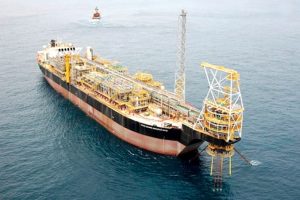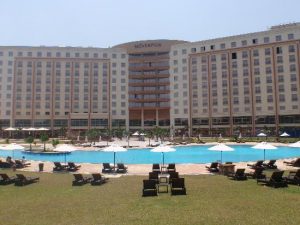
World Bank says it is confident that Ghana’s economic recovery is on course, following the recent improvement of commodity prices on the international market.
Ghana is a major exporter of commodities such as cocoa beans, gold, crude oil, among others.
With the improvement commodity prices and improved macroeconomic management, Ghana will recover faster, World Bank Country Director for Ghana World, Henry Kerali told journalists in Accra over the weekend.
According to him, Ghana’s economy is projected to grow between 6 to 7 percent for 2017, after registering a worst decline in 2016. The country’s economy grew at 3.5 percent in 2016 down from the 3.9 percent in 2015.
However, the World Bank is also projecting that the country’s growth figure will inch up above the 2017 figure in 2018 and subsequent years.
The World Bank’s 6 to 7 percent growth target is higher than the government’s growth projection of 6.3 percent in 2017.
On energy, Mr Kerali noted: “Ghana has been overly successfully in attracting investments to the energy sector. But some of the projects were not procured in a proper manner”.
The previous government signed over 40 power purchase agreements (PPAs) with independent power producers (IPPs) but some of these PPAs were not properly examined.
However, the current government is reviewing some of the agreements especially the Africa & Middle East Resources Investment Group LLC (AMERI Energy) for the construction of the power plant.
Recently, the committee charged to review, restructure and recommend areas of amendment of the Ameri power deal, had recommended that the deal be re-negotiated or abrogated on grounds of fraud, after it emerged that Ghana was made to pay 150 million dollars extra in commission to AMERI for the construction of the power plant.
Touching on rising public debt, Mr Kerali said: “Ghana needs to do more to reduce its public debt” which is hovering around 75 percent of GDP, according to figures from the Bank of Ghana (BoG).
Ghana’s 75 percent debt to GDP is the highest in Africa as compared with 50 percent debt to GDP on the continent.
Additionally, he lamented that the country’s rising public expenditure and budget overruns have hampered Ghana’s efforts at achieving its economic targets over the years.
The election uncertainties are also affecting some critical investment decisions while increased expenditure is affected the public purse, according to Mr Kerali.
The Bank, he said is hopeful that the current government would pursue sound economic policies by controlling public expenditure to speed up the growth.
Mr Kerali noted: “We are anticipating improved macro-economic management which means at the moment if we look at the structure of the budget and revenue collected, a significant proportion is spent on non-discretionary items like salaries and interest payments”.
“So with better management of the economy, that should release funds for investments which will further boost growth and these are some if the priorities that we see that the new administration is putting in place which gives some optimism that the economy will recover faster than it has performed in previous years.”
Mr. Kerali who was addressing the journalists at a press conference after this year’s World Bank Group/IMF Spring Meetings in Washington D.C., USA, advise the government to have a competitive process for public investments in the country.
Instructively, the Spring Meetings of the World Bank Group and the International Monetary Fund (IMF) each year bring together central bankers, ministers of finance and development, private sector executives, and academics to discuss issues of global concern, including the world economic outlook, poverty eradication, economic development, and aid effectiveness. Also featured are seminars, regional briefings, press conferences, and many other events focused on the global economy, international development, and the world’s financial system.
Ghana’s delegation to this year’s World Bank Group/IMF Spring Meeting was led by Vice President Mahamudu Bawumia and Finance Minister Ken Ofori Atta.
African Eye Report





